Low Tunnels for Year Long Production
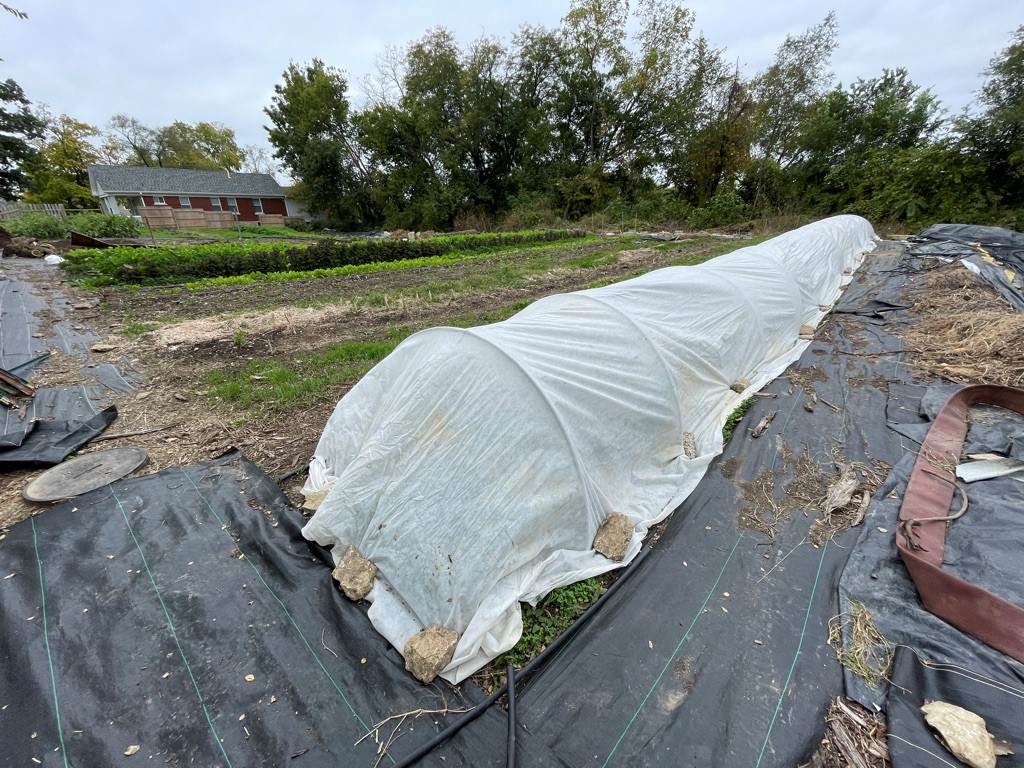
Last year we wrote about the variety of techniques and growing structures used locally for extending fruit and vegetable crops through the winter. One method that we’ve been implementing more recently in our demonstration gardens is the use of simple hoop structures know as low tunnels. This year in the Johnson County WIC Community Garden we are trialing several methods using these tunnels to provide yearlong donation to our partner food-pantries.
As we discussed in the four season gardening article, compared to more permanent greenhouse and high tunnel structures, “low tunnels are the garden-scale way for a home grower to sustain their own crops through the fall and winter. They can be adapted for small and large in ground plantings, raised beds and containers.”
In the vegetable garden specifically they can extend the harvest window on plants established in the late summer (e.g. broccoli, cabbage, carrots, etc.) and allow for later planting dates into the fall for quick maturing leafy greens like herbs, spinach, lettuce. In the case of long maturing crops they can essentially save a total loss, for example when a hard freeze threatens winter kill before your cauliflower florets have sized up, having a low tunnel already in place that you just need to cover can be a life saver.
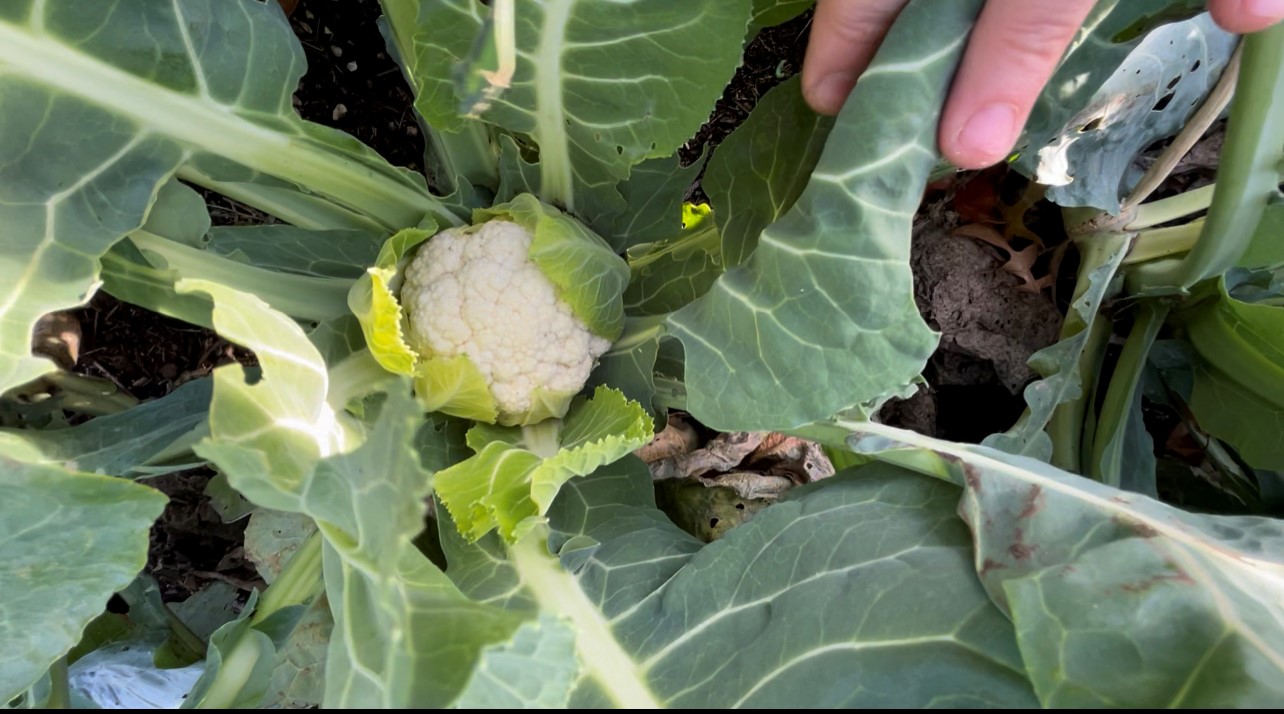
But even earlier in the year we had success using bird netting and floating row-covers over hoop structures made from ½’’ PEX irrigation tubbing. In this case we simply push the ends into the soil for anchoring. This was helpful for protecting berry plants from late spring freezes. And then later use of bird netting over the same low-tunnel made from PEX tubing helped to keep birds and other animals from dinning on fruit before we could.

Some growers in our region employ low tunnels enclosed with light-weight garden row covers or shade cloths during the heat of the summer to provide cooler temperatures and more diffused light to crops that grow best in cool weather like lettuce. This can prevent bolting when these plants are grown in warmer months—this technique proved helpful in our garden when we were transplanting leafy greens during heat spells in late August.
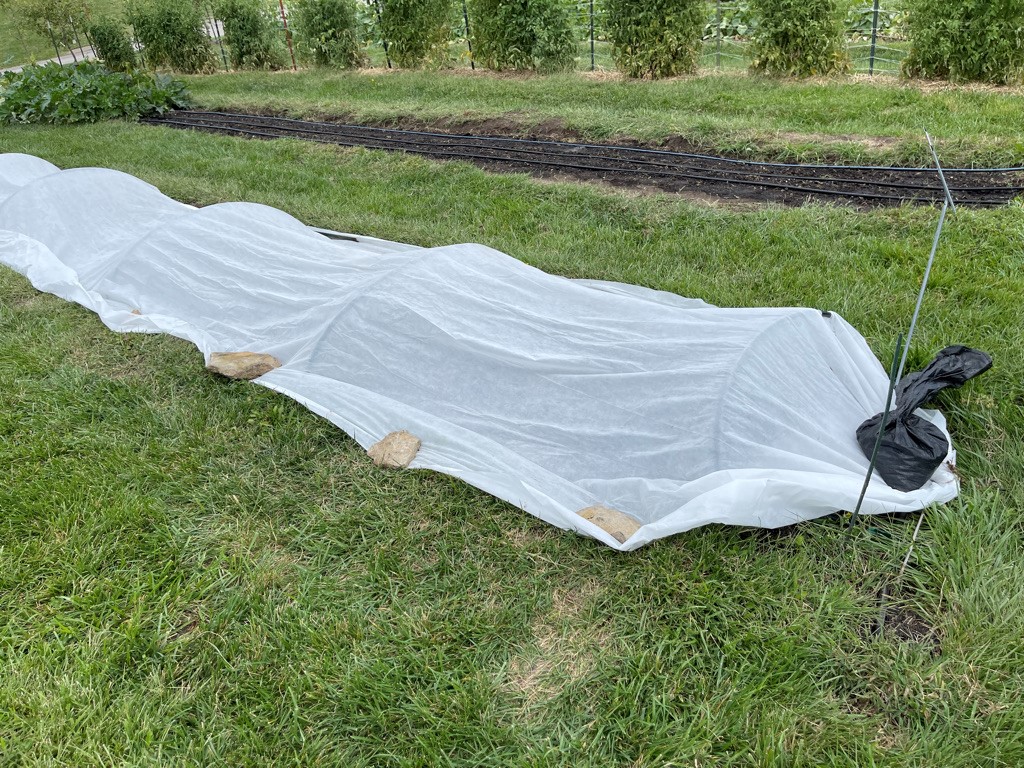
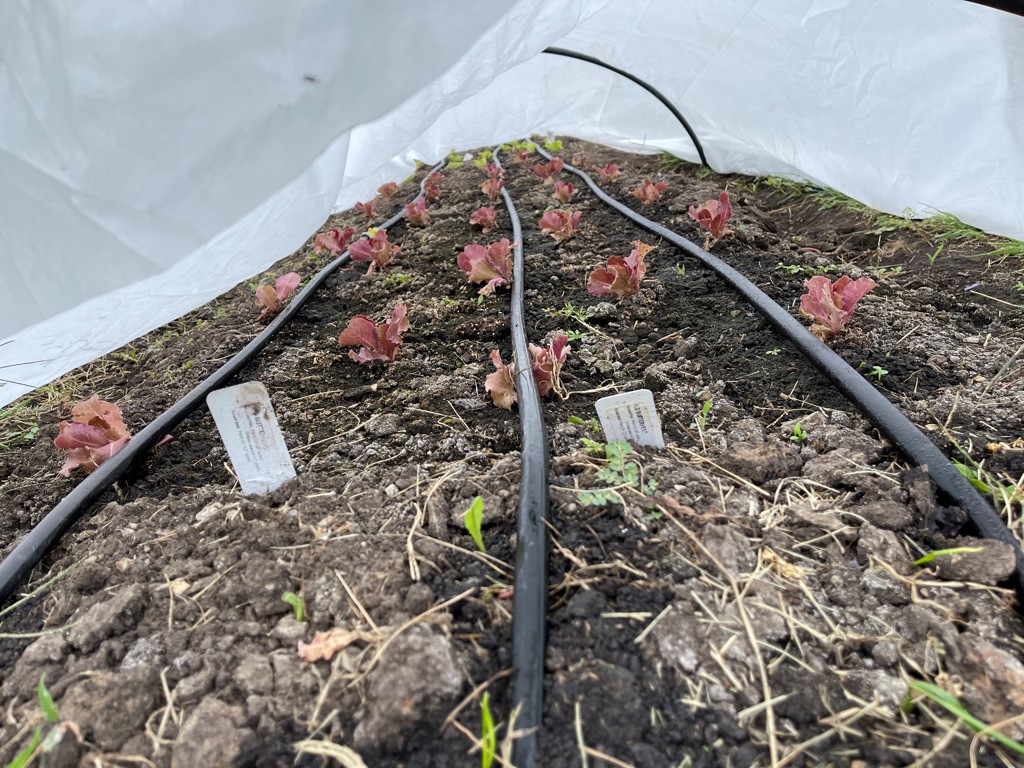
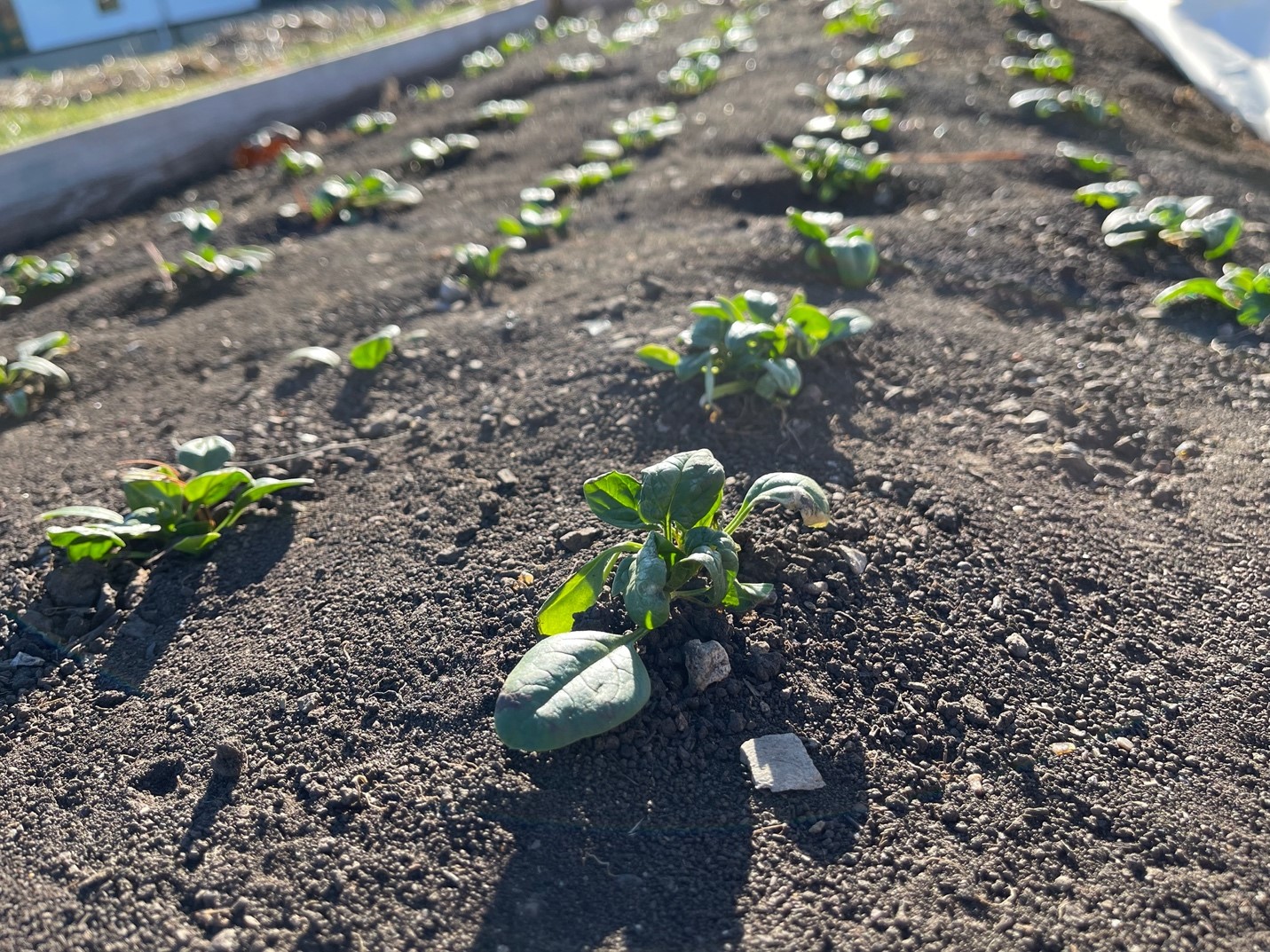
We are currently experimenting with the use of larger 6 ft wide low-tunnels for overwintering spinach planted in early fall for winter and spring harvests. Spinach are some of the most cold hardy plants that we grow in the vegetable garden and so they can be transplanted mid to late fall. With the use of sturdier hoops made from metal conduit (using a low-cost bender designed for low tunnels construction) some anchoring with rebar stakes, and 6 mil plastic sheeting a low-tunnel of this sort can hold up to winds and stay warm enough to produce a few spinach harvests In the winter and some bumper crops in the early spring—at least that’s what we’re hoping for!
Look for our next low-tunnel progress report in upcoming editions of Knowledge for Life.

